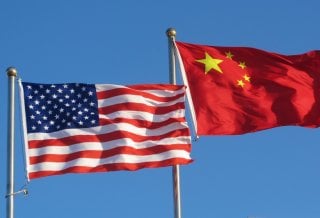China Should Push for American-Style Hegemony
Bullying won’t get Beijing to the top. Taking over responsibility will.
However, if China is providing the public service of policing in East Asia, then the United States will feel comfortable leaving. The voting public in democracies traditionally dislikes spending money on the military in remote parts of the world. They would rather spend it on healthcare and pensions at home. If the United States public feels the country can afford to spend less in Asia—because China is doing a better job than the United States could—then the United States will withdraw. For China, the challenge is not defeating the United States, it is allowing the United States to leave. This is a process of displacement, not confrontation. China allows the United States to withdraw by providing hegemonic services to the region better and cheaper than the United States. It’s that simple.
History tells us that assuming hegemony does not imply war. The United States displaced Great Britain as the global hegemon sometime between the two world wars. Nevertheless, the United States and Britain have been the closest of allies for now two hundred years. Hegemony was passed without conflict, indeed, in some cases at the behest of Britain as the declining power. That is China’s model for East Asia. China becomes influential and respected not because it can beat up the kids on the playground, but because the kids on the playground trust China implicitly to protect personal and property rights and permit fair play. They turn to China for leadership, protection, financial support and organizational guidance. China could be proud of itself for providing these services. That is the true path to hegemony.
I am aware that I am asking a huge amount from China’s leadership and its people. I know many mainland Chinese, even those here in the United States, and they find it hard to adjust to the model I am proposing. Most Chinese still feel small, that they are besieged and are struggling to get to a higher level. They still feel they are competing with Vietnam and Japan. They are thus surprised when I tell them they have already arrived—they have already won the game—they only need to play out the cards they have been dealt to win the match. Doing good will mean doing well, and China will rise to the top, not because it is a military power, but because it is committed to solving problems and dealing fairly with its neighbors.
One could easily imagine a program for China to establish hegemonic services in East Asia. Do this, and China could be running the show in as little as two years. Be that as it may, China must choose. Will it face a humiliating setback in the South China Sea? Will it go to war and risk unmitigated destruction? With the decision to continue to militarize the region even after the UNCLOS decision, we may be on the path to war. But it is not compulsory. China could change tack and adopt a strategy that will bring prosperity and hegemony with integrity and honor. There is a better strategy for China.
Steven Kopits is a President of Princeton Energy Advisors. He consulted to government, state-owned enterprises and private clients in post-socialist Eastern Europe from 1990 to 2005, and monitors developments in China for his firm’s clients. Mr. Kopits regularly contributes commentary for CNBC and writes about oil market for the UAE’s National. He can be reached at [email protected]
Image: U.S. and Chinese flags at China’s CDC. Flickr/CDC Global.

